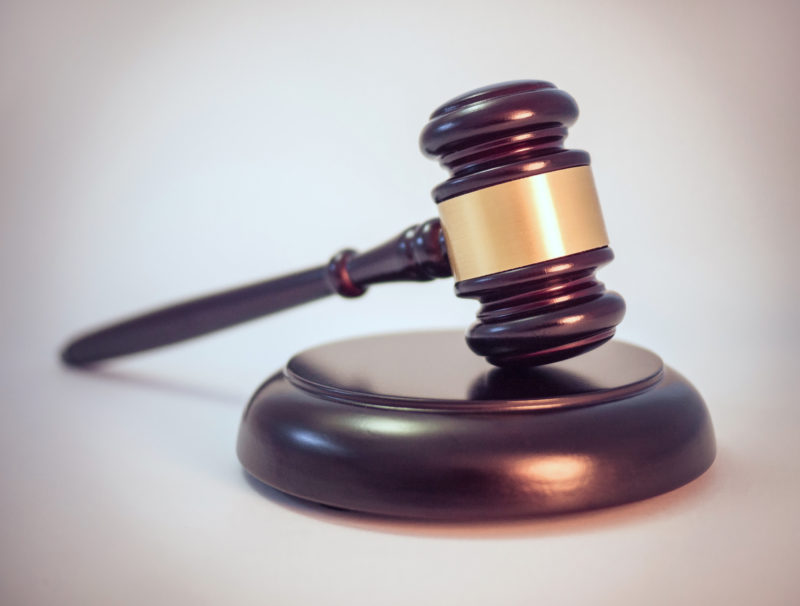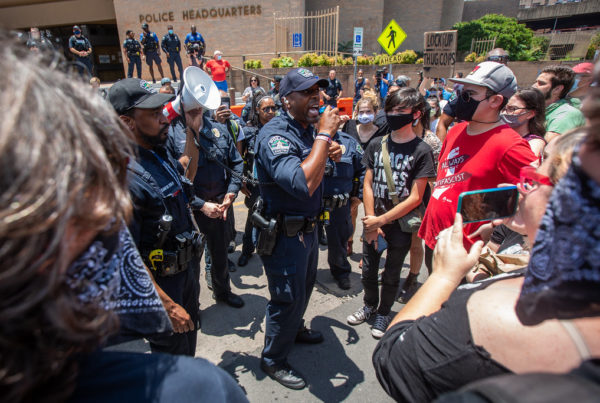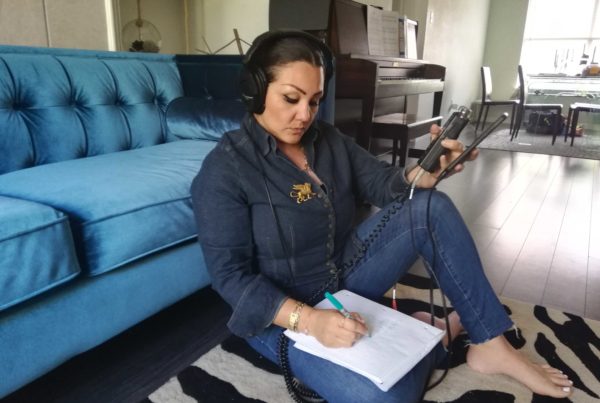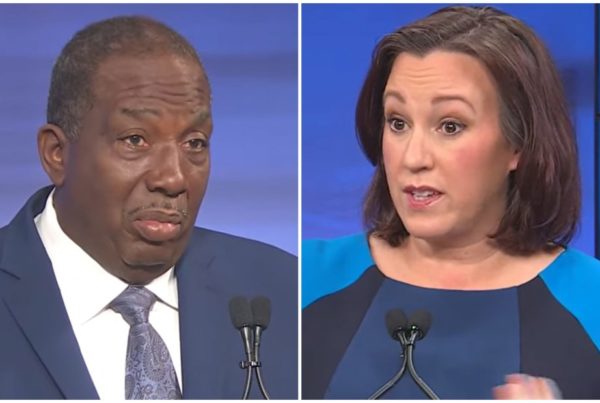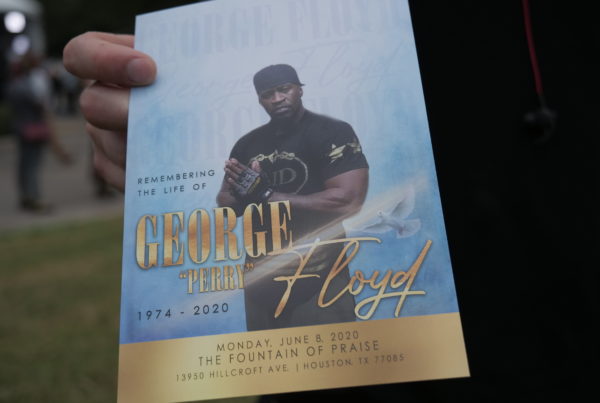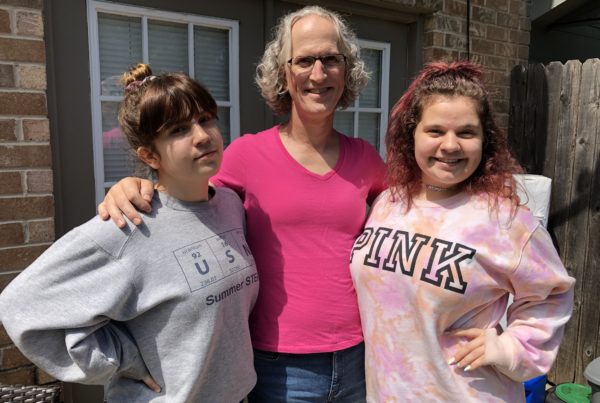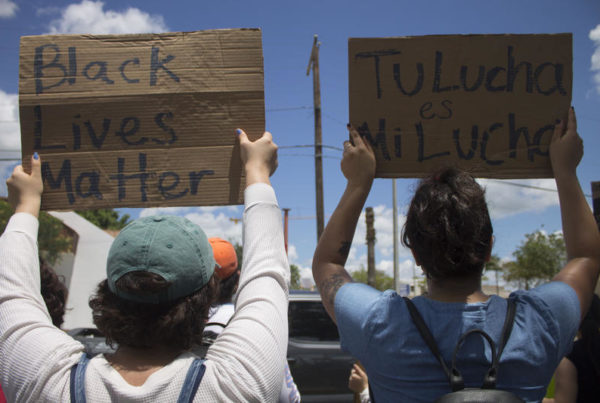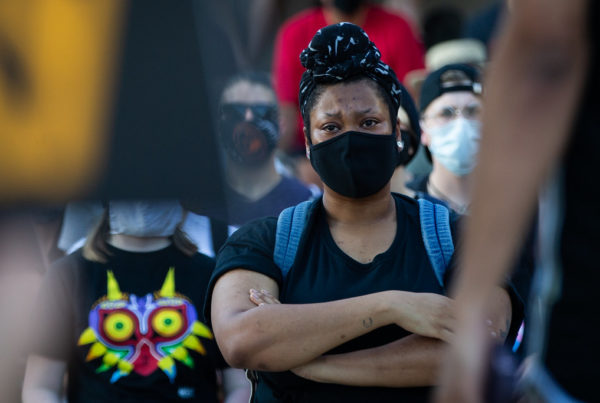Even when video evidence strongly indicates that a law enforcement officer has acted in a way that violates the law, police often keep their jobs. Why?
The answer is often rooted in a legal doctrine called qualified immunity, that protects police from liability. Some are calling for changes to, or even abolition of the protections for law enforcement officers.
Jennifer Laurin is Wright C. Morrow professor at the University of Texas School of Law. She told Texas Standard host David Brown the individuals are allowed to sue “government actors” who violate their constitutional rights. Qualified immunity, a doctrine created by the Supreme Court in the 1960s, placed a limit on the reach of the statute, protecting police officers who were deemed to be “acting in good faith” from lawsuits, even if they violated a citizen’s constitutional rights.
“Later on, in the 1980s, the doctrine became even more stringent, and now permits an officer to avoid litigation or liability, so long as the right they violated wouldn’t have been ‘clearly established in the mind of every reasonable government official’,” Laurin said.
The existence of the qualified immunity doctrine has potentially deterred many lawsuits that otherwise would have been filed, Laurin said.
“The 64,000 question is – is it shielding too much, or the right amount,” Laurin said.
Those who support the doctrine say officers will not do their jobs aggressively enough if they fear being sued. Opponents of qualified immunity say its existence prevents citizens from proving that their Fourth Amendment rights have been violated, and that it has prevented courts from create constitutional standards that would set out the limits of immunity.
Supreme Court justices Clarence Thomas and Sonia Sotomayor, who are often on opposite sides of the court’s conservative-liberal divide, have both expressed a desire for changes in qualified immunity, though the court had put off cases that could lead to change, prior to the death of George Floyd in Minneapolis police custody. Laurin said the libertarian Cato Institute and the American Civil Liberties Union’s Racial Justice Project have signed onto briefs with the court, seeking changes to qualified immunity.
Laurin said she believes the political momentum on qualified immunity could lead Congress to amend the statute where courts have previously carved out qualified immunity.
Web story by Shelly Brisbin.


